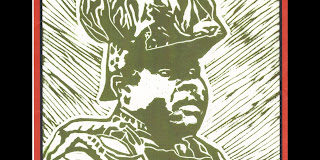2013 Marcus Garvey Illustration in Context (on the cover of Time Magazine)
Marcus Garvey was a proponent of the Black Nationalism and Pan-Africanism movements, inspiring the Nation of Islam and the Rastafarian movement.
Born in Jamaica, Marcus Garvey was an orator for the Black Nationalism and Pan-Africanism movements, to which end he founded the Universal Negro Improvement Association and African Communities League. Garvey advanced a Pan-African philosophy which inspired a global mass movement, known as Garveyism. Garveyism would eventually inspire others, from the Nation of Islam to the Rastafari movement.
Social activist Marcus Mosiah Garvey, Jr. was born on August 17, 1887, in St. Ann's Bay, Jamaica. Self-educated, Garvey founded the Universal Negro Improvement Association, dedicated to promoting African-Americans and resettlement in Africa. In the United States he launched several businesses to promote a separate black nation. After he was convicted of mail fraud and deported back to Jamaica, he continued his work for black repatriation to Africa.
Marcus Mosiah Garvey was the last of 11 children born to Marcus Garvey, Sr. and Sarah Jane Richards. His father was a stone mason, and his mother a domestic worker and farmer. Garvey, Sr. was a great influence on Marcus, who once described him as "severe, firm, determined, bold, and strong, refusing to yield even to superior forces if he believed he was right." His father was known to have a large library, where young Garvey learned to read.
At age 14, Marcus became a printer's apprentice. In 1903, he traveled to Kingston, Jamaica, and soon became involved in union activities. In 1907, he took part in an unsuccessful printer's strike and the experience kindled in him a passion for political activism. Three years later, he traveled throughout Central America working as an newspaper editor and writing about the exploitation of migrant workers in the plantations. He later traveled to London where he attended Birkbeck College (University of London) and worked for the African Times and Orient Review, which advocated Pan-African nationalism.


Comments
Post a Comment